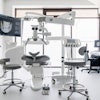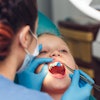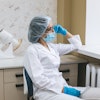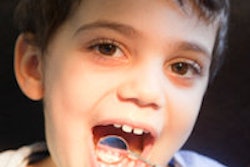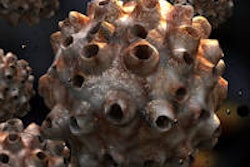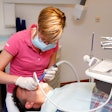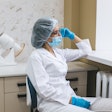What's in a kiss? About 80 million bacteria, the amount that is normally exchanged during a 10-second "French" kiss, according to a new study of smooching couples by Dutch researchers (Microbiome, November 17, 2014).
Intimate kissing involving full tongue contact and saliva exchange appears to be an adaptive courtship behavior unique to humankind and is common in more than 90% of known cultures, the authors noted.
The more you tongue-kiss, the more alike the collection of bacteria in your saliva becomes to that of your partner, according to the study.
"Tongue-kissing is a nice example of brief exposure to a gigantic quantity of bacteria. Around 80 million in just 10 seconds," principal investigator Remco Kort said in a statement. Kort is a microbiologist and principal scientist at the Netherlands Organization for Applied Scientific Research (TNO) and a professor of microbial genomics at Vrije University Amsterdam.
The research was a collaboration between TNO and the Micropia museum in Amsterdam.
"A number of these [bacteria] nestle on your tongue but many don't," Kort said. "We wanted to find out the extent to which the oral microbiota -- the sum of the micro-organisms you have in your mouth -- are similar in the two partners."
The study used Next Generation Sequencing technology to identify the oral microbiota of 21 couples who completed questionnaires on their kissing behavior, including average intimate kiss frequency.
The researchers found that the oral flora on the tongue of the partners seem to be much more alike than the oral flora of random persons. The kissing behavior did not seem to have much of an effect: A tongue kiss did not lead to an increase in the similarity in micro-organisms between the tongues of both partners.
"It didn't matter whether the partners said they tongue-kissed nine times a day or nine times a year," Kort noted. "Obviously there are other key factors at work, such as having the same diet or using the same toothpaste."
In the saliva, however, there was a clearly discernible effect: The more often you tongue-kiss each other, the more alike the collection of bacteria in your saliva becomes.
It's possible to swap up to 500 different species of germs, including those that cause periodontal disease, from the holiday tradition of kissing under the mistletoe, according to the Academy of General Dentistry (AGD).
"With just one kiss, this infection can be passed between couples and even to children," AGD spokesperson Lawrence Bailey, DDS, has said. "In the spirit of the season, folks with gum disease should refrain from kissing under the mistletoe."
